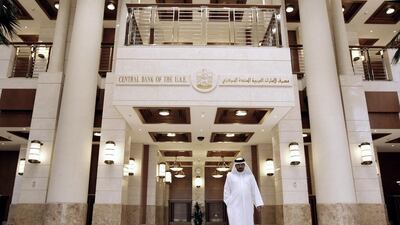The Central Bank of the UAE raised interest rates on its certificates of deposit by 25 basis points on Thursday, in line with the US Federal Reserve move on Wednesday to increase the Federal Funds rate by the same amount.
Markets had expected the increase amid signs of an improving US economy.
At the same time, Janet Yellen, the chairwoman of the Federal Reserve, indicated that the lender of last resort would still be accommodative with rates and wouldn’t rush to raise them quickly.
Higher interest rates usually make currencies stronger. While that represents good news for holders of the dirham, which is pegged to the dollar, it creates challenges for the wider economy.
A strong dirham hurts exporters, saps demand for property investment and is also a drag on the hospitality and retail sectors, which rely heavily on high spending tourists.
“US interest rate hikes will support a stronger US dollar in 2017, further eroding the external competitiveness of non-oil exports of goods and services from the GCC,” said Monica Malik, Abu Dhabi Commercial Bank’s chief economist.
Dima Jardaneh, an economist at Standard Chartered in Dubai, echoed the sentiment, adding that less foreign investment may make regional governments more reliant on tapping the debt market to fill financing holes.
The Central Bank said on Thursday that it had raised its repo rate against certificates of deposits to 1.25 per cent.
Saudi Arabia, Kuwait and Bahrain, which also track US monetary policy, also raised interest rates.
The benchmark that UAE lenders use, the three-month Emirates Interbank Offered Rate, responded to the Central Bank’s move on Thursday, rising to 1.46 per cent from 1.41 per cent.
Before the financial crisis of 2008 that prompted the US Federal Reserve to lower rates near to zero, the Eibor rate stood at a whopping 5.5 per cent, a level that analysts say would not be rescaled anytime soon.
Yesterday’s hike, however, will be a boon to savers, even if that comes at the expense of those who have debt and possibly the wider economy if the US dollar continues to strengthen.
“If you are a saver it won’t make much of a difference immediately but it will over time go up,” said Jaap Meijer, the head of research at the Dubai-based investment bank Arqaam.
“Over time, there will be more rate hikes and the saving rates will go up. It will be in the next two years. Mortgages will feel more of the pain but savers will get more in gain.”
Banks are not obliged to raise rates on savings accounts immediately following a rate hike but customers with loans or savings that are tied contractually to Eibor will see changes reflected in their statements in the next couple of months.
Bankers said that while lenders don’t have to raise rates on savings accounts, not doing so would be a risk as customers would shift deposits to rivals.
mkassem@thenational.ae
Follow The National's Business section on Twitter

